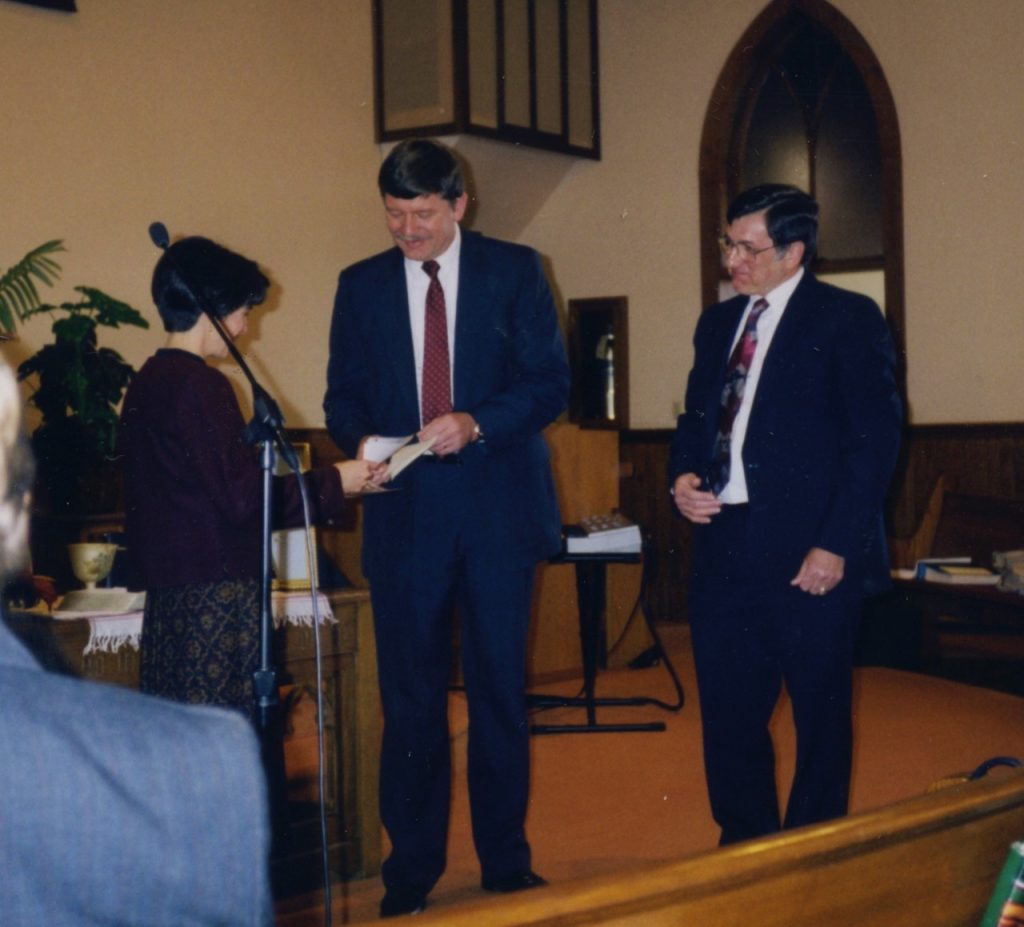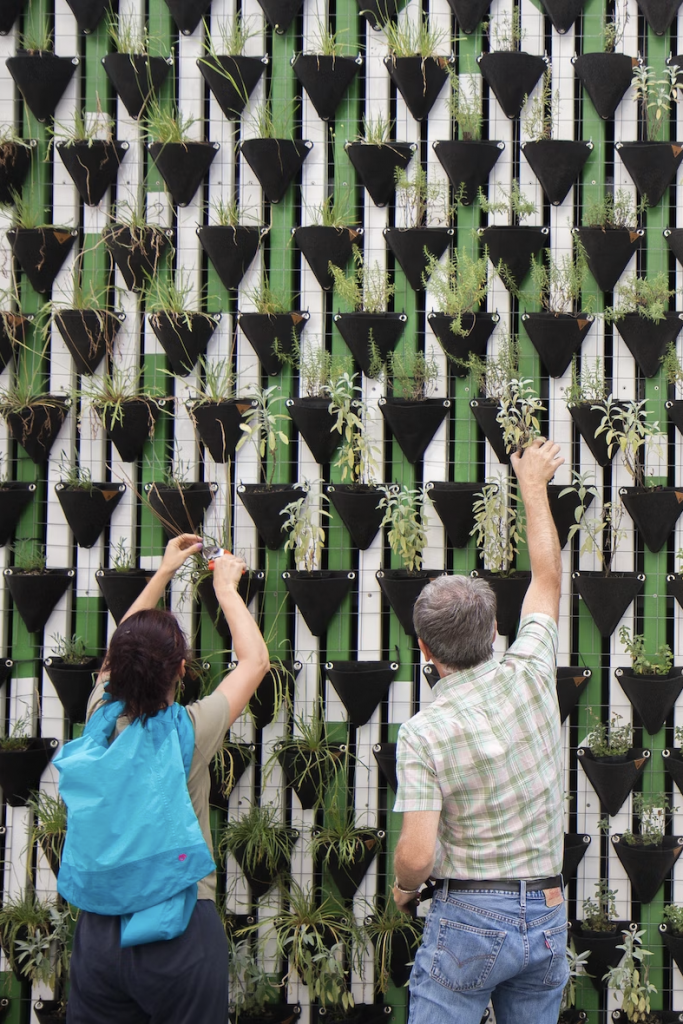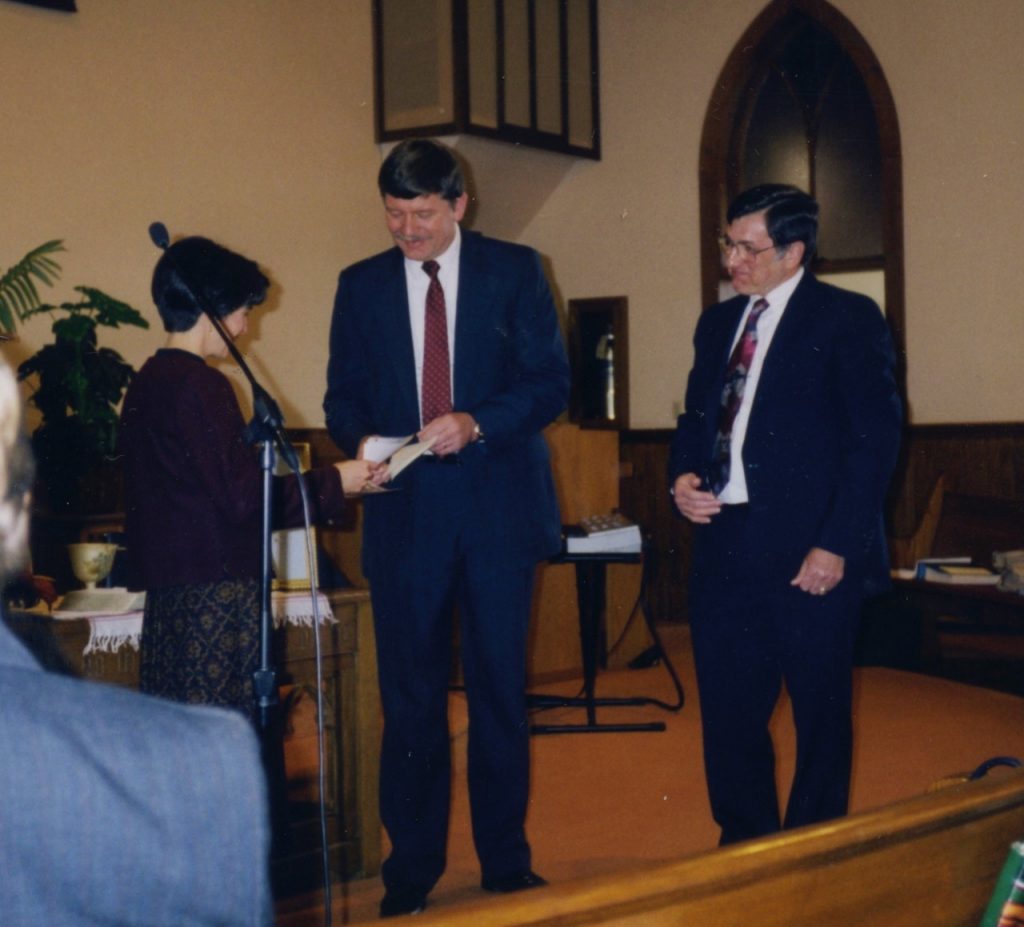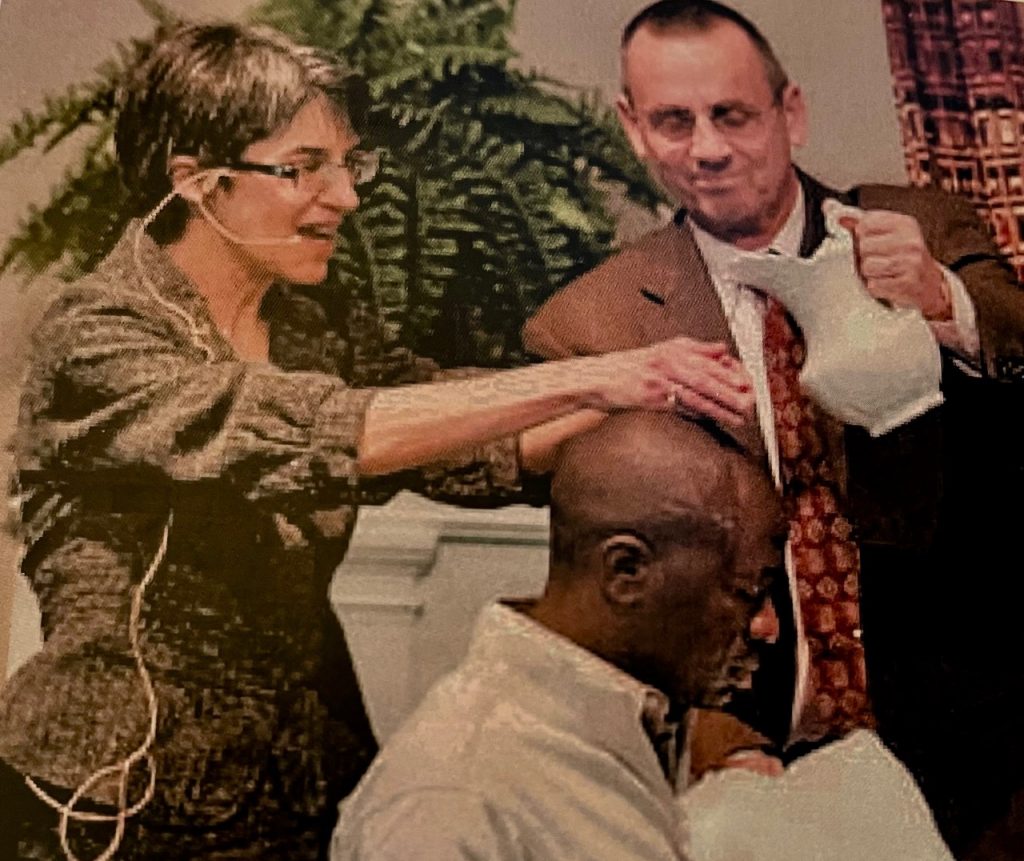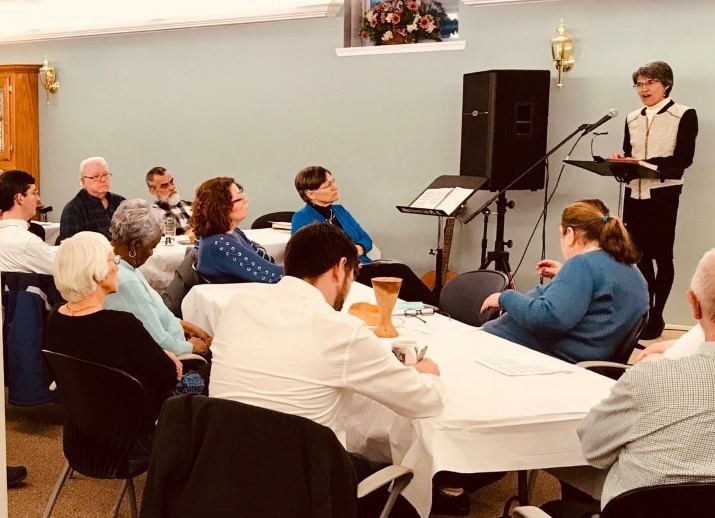by Mary Nitzche
In the spring of 2017, I was invited to serve as Associate Executive Minister beginning July 1. For nearly five years I served in this role until my successor, Marta Castillo, began in February 2022. Since then, I have been gradually letting go of some responsibilities while assuming new roles. February 2022, I began a two-year administrative role with the Mosaic Board and Executive Committee. In January 2024, I was invited to a one-year interim Leadership Minister role with Hendy Matahelemual for our three Indonesian congregations in California. One role I continued throughout my tenure with Mosaic was serving as Leadership Minister for the Alpha, Fairfield, and Taftsville congregations. At the end of September, I will be fully retiring. (No more asks, Steve!)
As I reflect on my seven years with Mosaic Conference, relationships that formed brought me gratitude, joy, and challenge.
Gratitude
I am so grateful for the team of colleagues I worked alongside. I value the comradery, and unique gifts, perspectives, and wisdom they each bring to our team.
Each time I was ready to release responsibilities, one of our staff members was prepared and willing to assume the role. I am so grateful for competent, committed, and younger leaders who are serving well as I let go. The vision for developing younger leaders is bearing much fruit.
I am grateful for our conference priorities, particularly nurturing intercultural connections. The diversity of our staff and member congregations reflects our intentionality and hard work of welcoming and becoming more culturally sensitive.
Joys
Relationships with colleagues, pastors, conference and congregational leaders, and leaders within Mennonite Church USA (Conference Ministers and Constituency Leader Council members) has been an invaluable gift.
Leading two groups, women pastors and leaders and chaplains has been gratifying. I witnessed the care, support, and encouragement given to each other as they faced opportunities, challenges, and transitions in their ministry settings.
Assisting new leaders through the credential process was tedious and inspiring, especially hearing their stories of call to ministry. Participating in or attending their licensing and ordination services, reminded me of the Holy Spirit’s mysterious and holy activity in calling, preparing, and empowering leaders to serve in a variety of ministry roles and settings.
Interviewing women who were first to be credentialed in our conference (Franconia, Eastern District, and Mosaic) and representing different cultural groups has been another holy experience.
Challenges/laments
As the credentialing process became more complex given the nuances of our growing cultural diversity, I realized it was time for me to make room for someone more gifted and experienced.
Conflict over theological differences was also beginning to wear on me even though, from our origins as Anabaptists, this has been an ongoing struggle.
While I cherish all the relationships, new understandings gained, and rich experiences of the last seven years, it is time to retire. In each step of my long discernment process toward retirement, I recognized my priorities were shifting. The demands of the work physically, emotionally, intellectually, and interculturally were beginning to stretch me in body, mind, and spirit.
Thank you, Mosaic Conference for the privilege of serving in a variety of roles with your trust and support each step of the way.
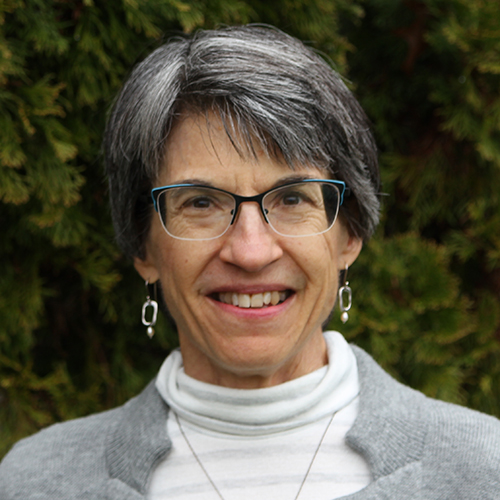
Mary Nitzsche
Mary Nitzsche is a Leadership Minister for Mosaic Conference. She and her husband, Wayne, are Midwest natives. They have two adult daughters, Alison and Megan, sons-in-law, Michael and David, and two delightful grandchildren, William and Audrey. Mary enjoys spending time with family and friends, walking, knitting, sewing, and cooking.

